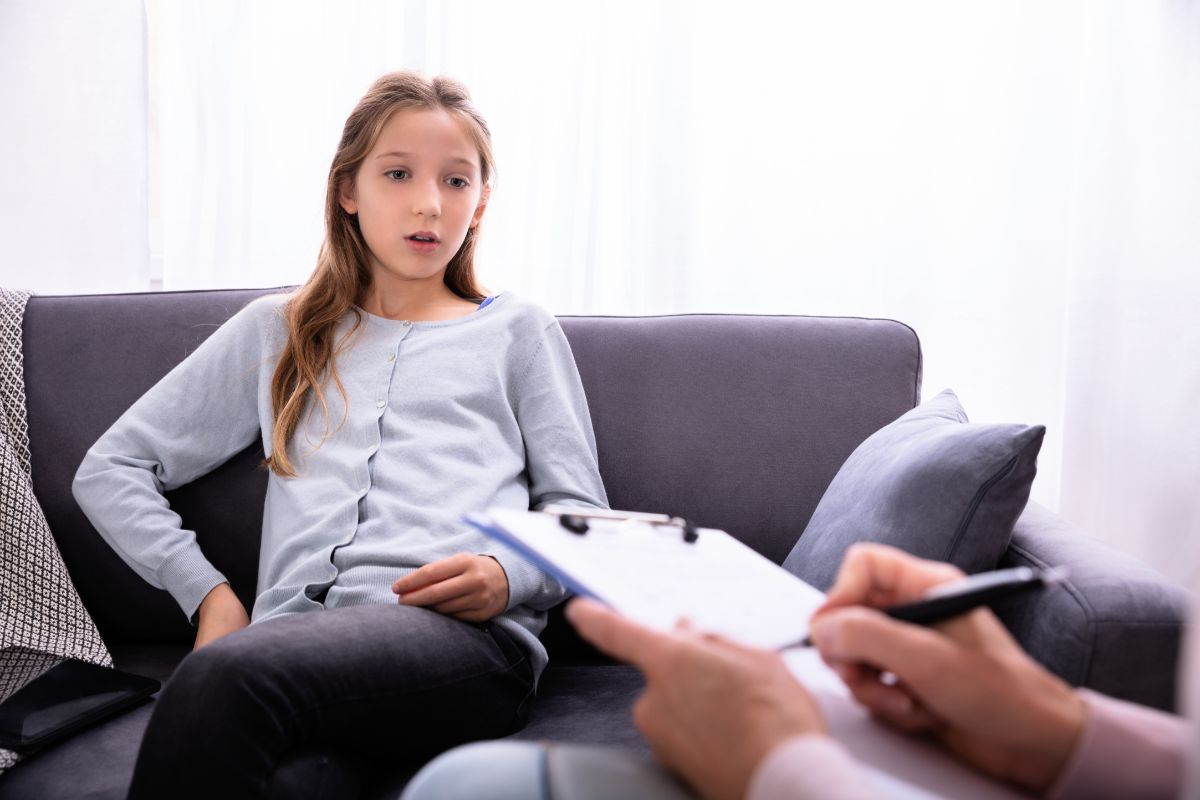
The Difference Between Real Life Depression and Depression in Movies
The state of mental health across the United States is worsening for all age groups. Although the COVID-19 pandemic has resulted in a significant increase in depression and other mental health struggles, the prevalence of depression and other mental illnesses were relatively high among adults and teens even before 2020. According to the 2021 report on the State of Mental Health in America, youth mental health continues to decline. As many as ten percent of youth under the age of eighteen meet the diagnostic criteria for severe depression.
Of those, as many as sixty percent of youth with a major depression diagnosis did not receive any treatment for their symptoms in 2018. Teen depression is a severe mental health problem that is more pervasive and common among teens than many realize. Depression causes persistent feelings of sadness and loss of interest in typical everyday activities. When a teen struggles with depression, it can affect how they think, feel, and behave. It can also cause emotional, physical, and functional problems. Although depression knows no age boundaries, the symptoms and presentation may be different between teens and adults.
The depression-causing stressors and triggers faced by teens are often different than those of adults. Hollywood, be it movies or nightly television series, often portrays depression in ways that either glorify or stigmatize the symptoms teens (and adults) struggle with. Some series dedicate entire seasons or even (most of their episodes) of their shows to mental health struggles. A few prime examples include many episodes of Glee, This is Us, and most of the seasons one and two of American Horror Story. Movies are not exempt from misrepresenting, stigmatizing, or glorifying depression in teens. Hollywood has decades of movie history where movies fail to accurately represent the challenges and struggles teens with depression face as they try to navigate being a teen. The list is long, but a quick google search will give you a few popular titles such as The Perks of Being a Wallflower, Sixteen Candles, The Virgin Suicides, and The Twilight Series elements. Yes, Bella was a depressed teen. The truth is, there is a significant difference between teenage depression in the movies and that which Hollywood portrays. Looking to television and film as a way to recognize depression will often lead to misunderstandings or the inability to recognize that your teen may be struggling with something that is treatable. With the right treatment program, such as a teen-focused depression treatment program at Beachside, your teen can begin to live their day-to-day lives free of the struggles and symptoms depression often brings.
What Does Teen Depression Really Look Like?
Frequent emotional fluctuations are common among teens. Teens have mood swings, and they have moments where they just want to be left alone. These are a normal and expected part of teen development, especially considering the ever-changing landscape of their emotional and social environments. The teen years are a time of changes to their brain, body, and lives. All of these changes occur simultaneously and can sometimes become overwhelming and challenging to navigate. For a parent, it could become hard to determine whether the emotions your child is experiencing her traditional “teen angst” or a signal that your teen is depressed.
The signs and symptoms of teen depression are not necessarily those that are seen on cable TV or Netflix. In most cases, the signs and symptoms of teen depression will include a noticeable change from your teen’s usual attitude and behavior. These changes can cause significant difficulties both at home and at school and during social activities and other areas of their day-to-day life. Depression is relatively common among teens occurring in about one out of every eleven kids between the ages of 12 and 17. In fact, statistics show that depression is more common among teenagers than it is in adults.
It can often be challenging for parents and caregivers to know whether their teen’s symptoms are those of depression or “normal” teen development. The Diagnostic and Statistical Manual of Mental Disorders, Fifth Edition (DSM-5) lists a wide range of diagnostic criteria that can lead to a diagnosis of depression. However, many of these criteria could also fall into several other categories, including teen angst or frustration resulting from doing poorly on a major test. In most cases, the emotions your teen experiences signify depression (as opposed to typical teen angst) when moodiness and other behavioral and emotional changes continue for more than two weeks and begin to affect your teen’s ability to function in their day-to-day lives.
Does My Teen Have Depression? – Take Our Free Test Today
How Hollywood Depicts Depression
Depression is common (some would say far too common) in our society. Major depression is a leading cause of disability for Americans over the age of fifteen. According to data provided by the Centers for Disease Control and Prevention, as many as two million children and teens (ages three to seventeen) meet the diagnostic criteria for depression. Because so many are familiar with depression, it is often depicted in television shows and movies. However, there remains an ongoing debate, a sometimes-contentious debate, about how helpful it is to portray mental illness on screen. Some believe it makes the characters in favorite television shows or movies more relatable as they struggle with “real world” problems and challenges. On the other hand, others believe it does little more than glamorize or even stigmatize mental illness.
It doesn’t take a lot of searching to find a movie or television show that includes a reference to depression (or another related, commonly co-occurring mental illness such as anxiety) or features a character or storyline about depression.
Popular movies and shows like 13 Reasons Why or A Star is Born excellent and current examples. Every show, including those referenced above, depicts depression differently, with some being significantly more accurate than others. In 13 Reasons Why, the main character suffers from depression and suicidal thoughts. A teen who struggles with severe depression will sometimes experience suicidal thoughts or attempt self-harm. In A Star is Born, the main character eventually turns to drugs and alcohol to self-medicate symptoms. Someone who suffers from depression in “real life” will often use substances to cope, resulting in substance use disorders and addiction. These movies “get things right” in terms of how they portray the main character’s struggles. But this is not always the case. There are plenty of Hollywood representations of depression and mental illness that go astray.
There are several examples of movies and television shows that misrepresent how one experiences and recovers from depression. One common example referred to frequently is the early 2000’s popular film, Legally Blonde. Elle Woods, the beautiful main character, suffers a breakup and immediately falls into a deep depression. After spending a day in bed crying and eating, she decides to apply to Harvard Law School and immediately (magically, illogically) snaps out of her funk. She immerges happier than ever. While symptoms of depression do include fatigue, sadness, and appetite changes, someone who is struggling with depression will not immediately feel like a new person because something good happens. Often, a teen struggling with depression will not be able to see the positive in things that happen. For that matter, they are not likely to seek out the good (as Elle did by applying to law school) as they do not believe they are worthy of positive things happening to them. Real-life teen depression often requires comprehensive, teen-focused therapy to help your teen learn how to manage symptoms and triggers in a healthy, productive way. Real-life teen depression will not simply resolve itself.
Among members of the mental health community, there remains debate about the benefits, or lack of, of portraying depression and other mental health conditions in movies and television. On one side of the debate, there is the opinion that showing characters with mental health struggles is glamorizing and sometimes stigmatizing mental illness. Actors and celebrity personalities are receiving an often-significant paycheck to play a role. Once they leave the set, they can simply flip the switch and resume their lives. For someone who genuinely struggles with depression or mental illness, there is no switch. On the other side of the debate are those who feel showing characters struggling with mental illness can have a positive influence. The advocates for portraying mental health struggles in the media think “everyday people” can look to characters who share their struggles and relate to them. The challenge is for Hollywood to portray these characters so that it has a positive and accurate influence. Some shows have succeeded, where others have clearly failed.
For many teens, feelings of depression are often temporary or stem from a specific event or experience. These teens just need a little time and support while they work through a period of difficult emotions. A temporary experience with depressive feelings does not necessarily mean they could meet the criteria for diagnosis. However, if your teen’s symptoms persist for more than a couple of weeks, there could be more to their emotional state. If you are concerned about your teen’s symptoms, it is important to remember that the best chances of recovery occur when treatment is sought at the earliest signs of a problem. This can help prevent depression from worsening with potentially detrimental outcomes. It is also important to maintain ongoing treatment, if recommended, to help prevent a relapse of depressive symptoms. If you are a teen who struggles with depression (or are concerned about a friend) or a parent of a teen experiencing symptoms you feel could be depression, do not wait to seek help. Recovery from depression is possible when your teen has access to proper individualized treatment plans that consider both your teen’s mental health and physical health. At a teen-focused program like Beachside, we design our treatment plans specific to your teen’s unique needs, not to the diagnosis. This ensures holistic, evidence-based treatment experiences that lead to recovery. If you are a teen experiencing depression or a teen parent who is concerned, don’t hesitate to call Beachside today.
Sources
https://www.mhanational.org/issues/state-mental-health-america Centers for Disease Control “Data and Statistics on Children’s Mental Health,” 2018)




